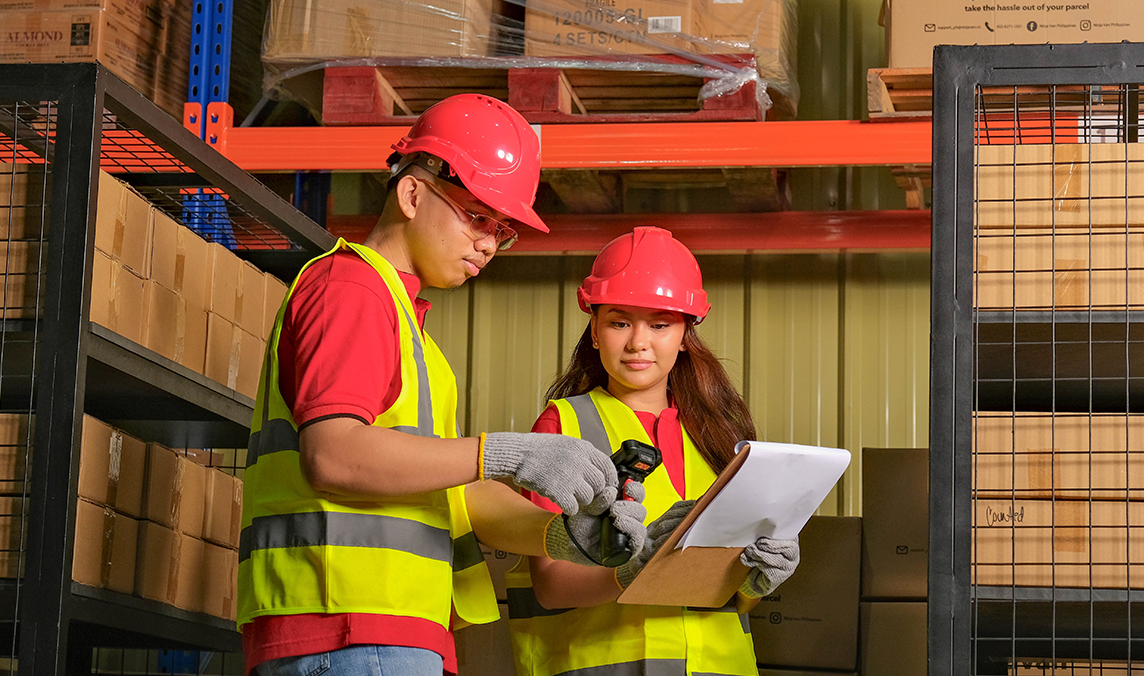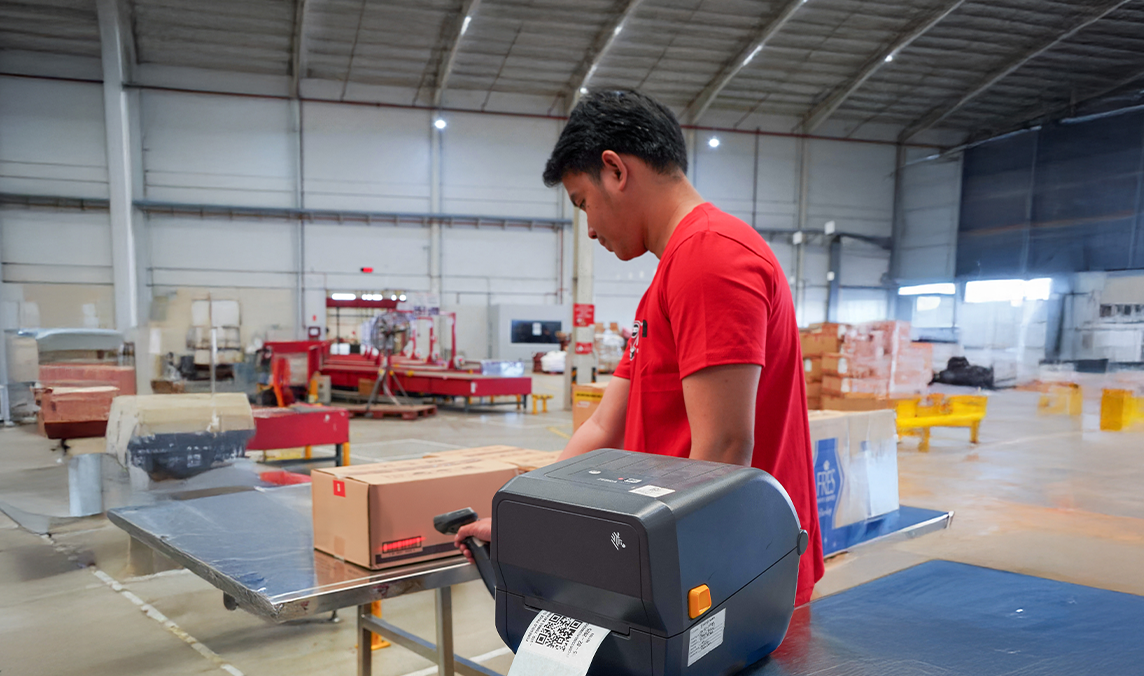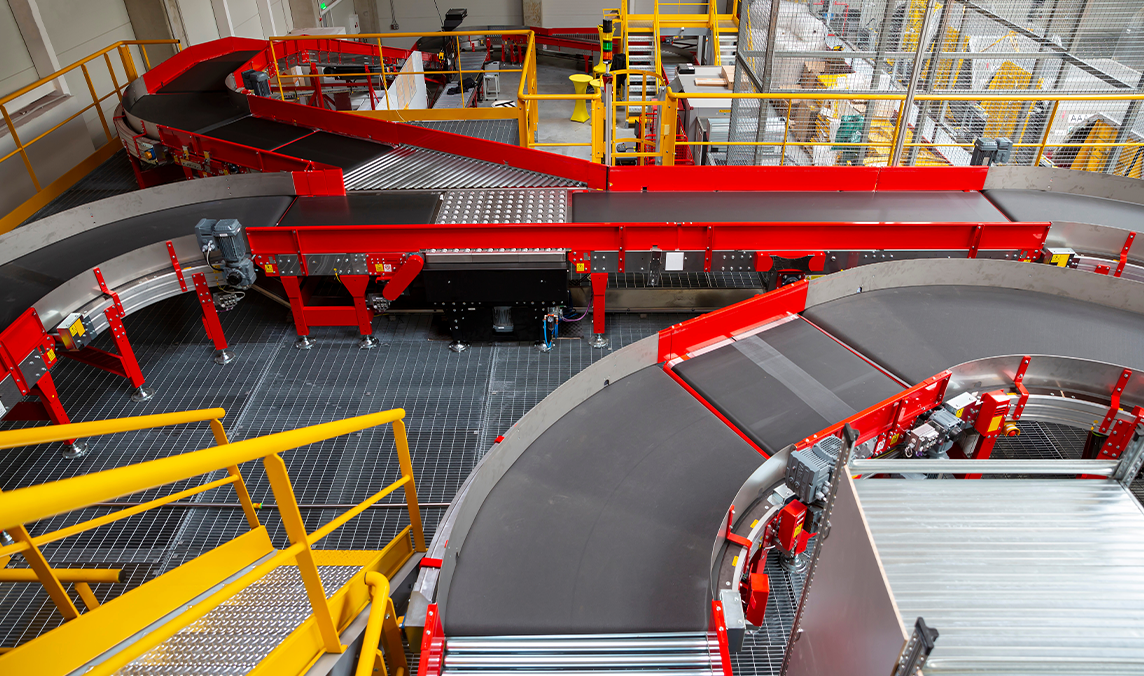Evolving Role of Tech Enablement in Logistics within The Philippines
.webp)
The logistics landscape in the Philippines, especially in Metro Manila and the Greater Metro Manila Area (GMA), has undergone a remarkable transformation driven by technological advancements. Tech enablement has become the cornerstone of success for businesses grappling with inventory management, fulfillment challenges, and scalability.
Technology-driven third-party logistics (3PL) solutions are redefining supply chains, empowering businesses to streamline operations and meet growing customer demands. Ninja Van leads this evolution with innovative services such as advanced warehouse inventory management and efficient fulfillment solutions.
In this article, we’ll delve into how technology drives these Philippine logistics trends and enables better logistics operations nationwide.
Tech-Driven Innovations in Logistics
Digital warehouse inventory management
Advanced systems like cloud-based inventory platforms are revolutionizing stock tracking by reducing errors and enhancing efficiency. These platforms help businesses optimize inventory levels, avoiding capital from being tied up in excess stock or losing sales due to stockouts. With deeper insights into consumer behavior and trends, companies can swiftly respond to market changes.
Tools like barcode scanners and radio frequency identification (RFID) tags simplify tracking, while enterprise resource planning (ERP) and warehouse management systems (WMS) automate reorders, optimize stock, and analyze trends. Real-time visibility across multiple warehouses or high-volume inventories eliminates the need for physical visits, streamlining operations on a national scale.
These systems save time, improve accuracy, and provide actionable analytics for smarter decision-making. By leveraging real-time data, businesses can efficiently manage expansions or large inventories, ensuring agility and eliminating inefficiencies in manual processes.
3PL fulfillment services
3PL fulfillment services streamline operations through real-time tracking, optimized routing, and automated order processing. These services go beyond warehousing to include digital picking lists, packing, and shipping.
Fulfillment software integrates data from multiple sources, offering complete visibility into an order’s lifecycle. Cloud-based platforms further enhance efficiency by automating inventory management, order picking, packing, and shipping. They also sync seamlessly with e-commerce platforms, consolidating order processing across multiple sales channels.
These resources are essential for businesses aiming to scale and enter new markets. By enabling seamless order fulfillment and efficient resource allocation, tech-driven 3PL solutions empower companies to stay competitive and grow effectively.
Smart warehousing & fulfillment solutions
Integrating IoT devices and AI brings predictive inventory restocking and demand forecasting to the forefront. IoT devices track and manage inventory in real time, while AI analyzes sales data to automate reordering and optimize stock levels. These technologies help prevent overstocking and stockouts by addressing potential issues before they arise.
Predictive analytics enables accurate demand forecasting, allowing companies to allocate resources effectively and reduce waste. Coupled with AI-driven insights and IoT-powered tracking, businesses can maintain balanced inventory levels, enhance operational efficiency, and meet market demands seamlessly without disruptions.
The Role of Technology in Overcoming Logistics Challenges in the Philippines

Addressing infrastructure gaps
The Philippines’ archipelagic geography and underdeveloped rural infrastructure pose significant logistical challenges, often leading to delivery delays. Tech-enabled logistics bridges these gaps with advanced tools like AI-powered route planning, which is capable of analyzing massive datasets, adapting to real-time conditions, and scaling with business needs.
Reinforcement learning (RL) algorithms, such as Q-learning and Deep Q Networks (DQN), enhance dynamic routing by continuously learning and optimizing policies based on real-time conditions such as traffic and delivery requests.
Deep Reinforcement Learning (DRL) algorithms leverage live data from traffic sensors and GPS to make precise routing decisions, while evolutionary algorithms, like genetic algorithms, optimize delivery routes using principles of natural selection.
Additionally, route optimization software reduces transit times, and emerging technologies like drones offer innovative solutions for last-mile delivery, offering flexibility and cost efficiency, especially in densely populated urban areas.
Enhancing supply chain transparency
Real-time tracking and analytics are key aspects of supply chain digitalization, improve visibility across the supply chain, and enable businesses to make data-driven decisions.
Route optimization tools enhance the customer experience by considering preferences like delivery time windows and special requests. These tools generate actionable insights that support strategic planning, facilitating faster issue resolution and tailored delivery options. With flexible time frames and improved efficiency, businesses can boost customer satisfaction and streamline operations.
Improving fulfillment accuracy
Automated systems reduce errors in order picking, packing, and shipping by integrating robotics, sensors, and software to eliminate repetitive tasks and manual data entry.
Advancements like Automatic Identification and Data Capture (AIDC) and automated sortation systems enhance accuracy and operational efficiency. Additionally, automated packaging systems optimize shipping methods, while autonomous mobile robots streamline order fulfillment by swiftly and effectively managing inventory movement.
Supporting sustainability goals
Data-driven logistics optimize fleet management by optimizing routes, minimizing fuel consumption, and reducing waste. Integrating eco-friendly transportation alternatives like electric vehicles and bicycle couriers further lowers carbon footprints. These innovations align logistics operations with sustainability goals, ensuring greener and more cost-effective solutions.
Key Benefits of Tech-Enabled Logistics for Businesses

1. Scalability
Technology equips businesses to adapt to fluctuating demand, whether during peak seasons or market expansion. Digital logistics platforms deliver real-time supply chain visibility, enabling calculated decisions and proactive problem-solving during scaling efforts.
Expanding into new markets often involves logistical complexities, but tools like route optimization can simplify the process. These technologies allow businesses to manage increased order volumes and geographic expansion seamlessly, ensuring smooth operations regardless of growth pace or market demands.
2. Cost efficiency
Automated warehouse inventory management dramatically reduces overhead and labor costs by streamlining resource allocation and minimizing waste. Robotic Process Automation (RPA) efficiently handles routine tasks like data entry, freeing employees to focus on value-added activities that drive business growth.
Last-mile delivery innovations, such as drones, offer cost-effective solutions by bypassing traffic and accessing remote locations faster than traditional methods. These advancements enhance delivery efficiency while reducing transportation expenses. Together, these technologies lower operational costs and uphold high service standards.
3. Improved customer experience
Faster, more accurate order fulfillment drives customer satisfaction and loyalty. Real-time tracking and notifications keep customers updated, instilling confidence in your services. Advanced analytics provide insights into customer behavior, delivery performance, and supply chain efficiency, helping businesses refine their strategies.
Personalized, and efficient delivery experiences not only enhance satisfaction but also encourage repeat purchases, fostering long-term customer relationships.
4. Competitive advantage
Early adoption of logistics technology gives your business a competitive edge, enhancing speed, reliability, and cost efficiency. These advantages make your brand more appealing to customers.
By effectively meeting consumer demands, you build credibility and trust. As you cater to evolving needs, your business attracts more customers, strengthening your market position and supporting sustainable growth.
Real-World Applications: How Ninja Van Leads the Way

1. Warehouse inventory management
Ninja Van’s AI-powered inventory management solutions ensure precise stock tracking and optimize warehouse operations. This advanced system streamlines processes like inventory management and order fulfillment, making them faster, easier, and more efficient.
By analyzing sales history and purchasing trends, AI provides accurate demand forecasting, helping businesses plan inventory orders and delivery schedules. With real-time stock tracking, Ninja Van’s system ensures products are available when needed, reducing the risks of stockouts and excess inventory.
This enhanced visibility into stock levels helps businesses make informed decisions and optimize warehouse operations to serve customers better.
2. 3PL fulfillment services in the Philippines
Ninja Van delivers end-to-end, tech-driven 3PL fulfillment services tailored for businesses in Metro Manila, GMA, and nationwide. By embedding AI technology into every aspect of the logistics process, Ninja Van offers businesses a seamless experience from warehousing to delivery.
AI streamlines processes by automating routine tasks, analyzing data for accurate delivery estimates, and optimizing routes to reduce operational costs. With real-time data and optimized workflows, Ninja Van ensures faster deliveries and smoother logistics, improving overall efficiency. Businesses can rely on Ninja Van to handle the complexities of order fulfillment and last-mile delivery, allowing them to focus on growth and customer satisfaction.
3. Customizable solutions
Ninja Van offers a wide range of flexible, customizable solutions to meet the special demands of B2B clients, retailers, and supply chain managers. Understanding that every business has different requirements, Ninja Van provides flexible delivery options, allowing customers to select preferred delivery times and locations to suit their schedules.
With Dedicated Account Management, businesses receive personalized support, tailored solutions for special requests, and help with logistics challenges.
Ninja Van also offers API integrations, bulk order uploads via CSV, and customized routing solutions, all backed by a comprehensive logistics management system. These options empower businesses to optimize operations, improve efficiency, and scale seamlessly.
From AI-powered warehouse inventory management to customizable fulfillment and warehousing solutions, Ninja Van ensures smooth, efficient logistics. Whether you’re managing a growing business or expanding into new markets, Ninja Van’s approach helps you stay ahead and efficiently achieve your operational goals.
How to Leverage Tech-Enabled Logistics for Your Business
1. Evaluate your needs
Before implementing tech-enabled logistics, you must assess your business’s specific logistics challenges. Identify pain points such as fulfillment accuracy issues, inventory management gaps, or slow delivery times.
Understanding these challenges will help you pinpoint areas where technology can impact most. For example, if inventory visibility is an issue, investing in digital warehouse inventory management could streamline your operations and reduce errors.
2. Partner with reliable providers
Collaborate with trusted, tech-enabled 3PL providers like Ninja Van to access scalable and efficient fulfillment services in the Philippines. By leveraging advanced technologies such as AI and real-time tracking, you can ensure smoother, more reliable operations.
Whether it's warehouse management, last-mile delivery, or route optimization, a reliable logistics partner helps reduce operational costs, improve customer satisfaction, and streamline your path to achieving business goals.
3. Invest in training
Technology can only be effective if your team knows how to use it. Equip your staff with the necessary training to maximize the benefits of advanced logistics technologies. Provide ongoing education on leveraging tools like inventory management systems, order fulfillment software, and analytics platforms.
When your team is proficient with the technology, you’ll see improved efficiency and better results in all areas of your supply chain.
4. Embrace continuous improvement
Logistics technology goes beyond implementation—analytics track performance, monitor trends, and identify areas for improvement. By using real-time data, you can refine your supply chain strategies to adapt to changing market conditions and customer needs. This proactive approach helps your business stay competitive, enhance operational performance, and optimize warehousing and fulfillment in the Philippines for long-term success.
Making Logistics Smarter
Failing to adopt tech-driven logistics solutions puts your business at risk. Without real-time tracking, optimized fulfillment, and efficient warehousing, you may face delays, rising costs, and dissatisfied customers—ultimately losing out to more agile competitors. Don’t let your business fall behind.
Ninja Van is here to help you navigate these challenges. With innovative fulfillment, real-time tracking, and AI-powered tools, you can streamline operations, cut costs, and deliver exceptional customer experiences.
Visit Ninja Van’s logistics solutions page to future-proof your business and stay ahead of the competition. Follow Ninja Van on social media for the latest updates and exclusive insights!

